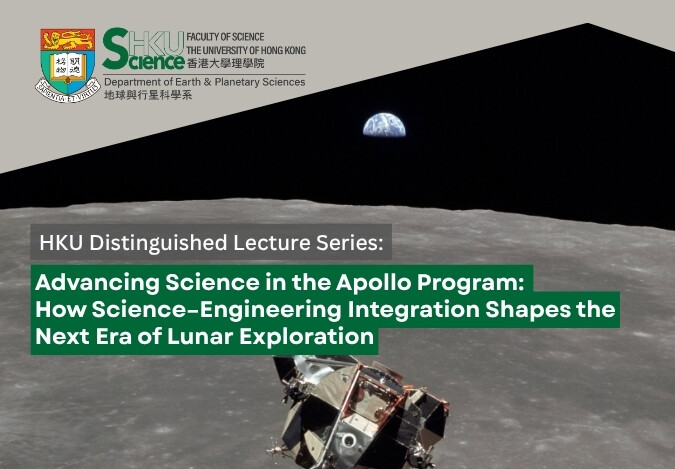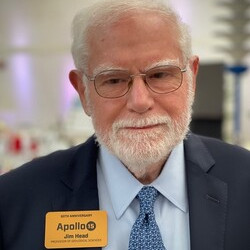HKU Distinguished Lecture Series - Advancing Science in the Apollo Program: How Science–Engineering Integration Shapes the Next Era of Lunar Exploration

- Date & Time
- November 21, 2025 (Friday) | 5:00 - 6:00 pm
- Venue
- CPD 2.19, 2/f, Run Run Shaw Tower, Centennial Campus, The University of Hong Kong
- Language
- English
- Speaker
- Professor James W HEAD
Louis and Elizabeth Scherck Distinguished Professor of Geological Sciences (Research), Department of Earth, Environmental and Planetary Sciences, Brown University
Abstract
The Apollo Lunar Exploration Program accomplished six successful lunar landings, with each mission expanding its scientific scope by improving landing precision, extending surface stays, increasing the number of extravehicular activities, and introducing new mobility systems, experiments and tools. These advances culminated in the Apollo 15–17 missions, which became full-fledged scientific expeditions.
This lecture will review the landing sites, surface operations, and scientific return of all six missions, highlighting how the integration of engineering and science, together with intensive astronaut training, transformed Apollo from achieving a national goal with Apollo 11 into targeted investigations of key regions fundamental to understanding the Moon’s origin and evolution. Lessons from Apollo will also be considered as guidance for planning future human exploration of the Moon.

Speaker Professor James W HEAD
Louis and Elizabeth Scherck Distinguished Professor of Geological Sciences (Research), Department of Earth, Environmental and Planetary Sciences, Brown University
Named the world’s top Earth Science scientist in Research.com’s 2025 Best Scientists ranking (D-Index 148), Professor James Head is renowned for pioneering studies of planetary evolution and for revealing how volcanism and tectonism have shaped planetary crusts. His research extends from Antarctica and the deep ocean to Mars, Venus, Mercury, the Moon, and icy satellites, exploring climate change, volcanic history, and surface geology across the Solar System. He earned a BSc from Washington and Lee University in 1964 and a PhD from Brown University in 1969. After four years with Bellcomm, Inc. in NASA’s Systems Analysis Branch—contributing to planetary geology and astronaut training for the Apollo Lunar Exploration Program—he served as Interim Director of the Houston Lunar Science Institute. Joining Brown University in 1973, he became a full professor in 1980, was appointed to the James Manning Chair in 1990, and has held the Louis and Elizabeth Scherck Professorship in Geological Sciences since 1995.


